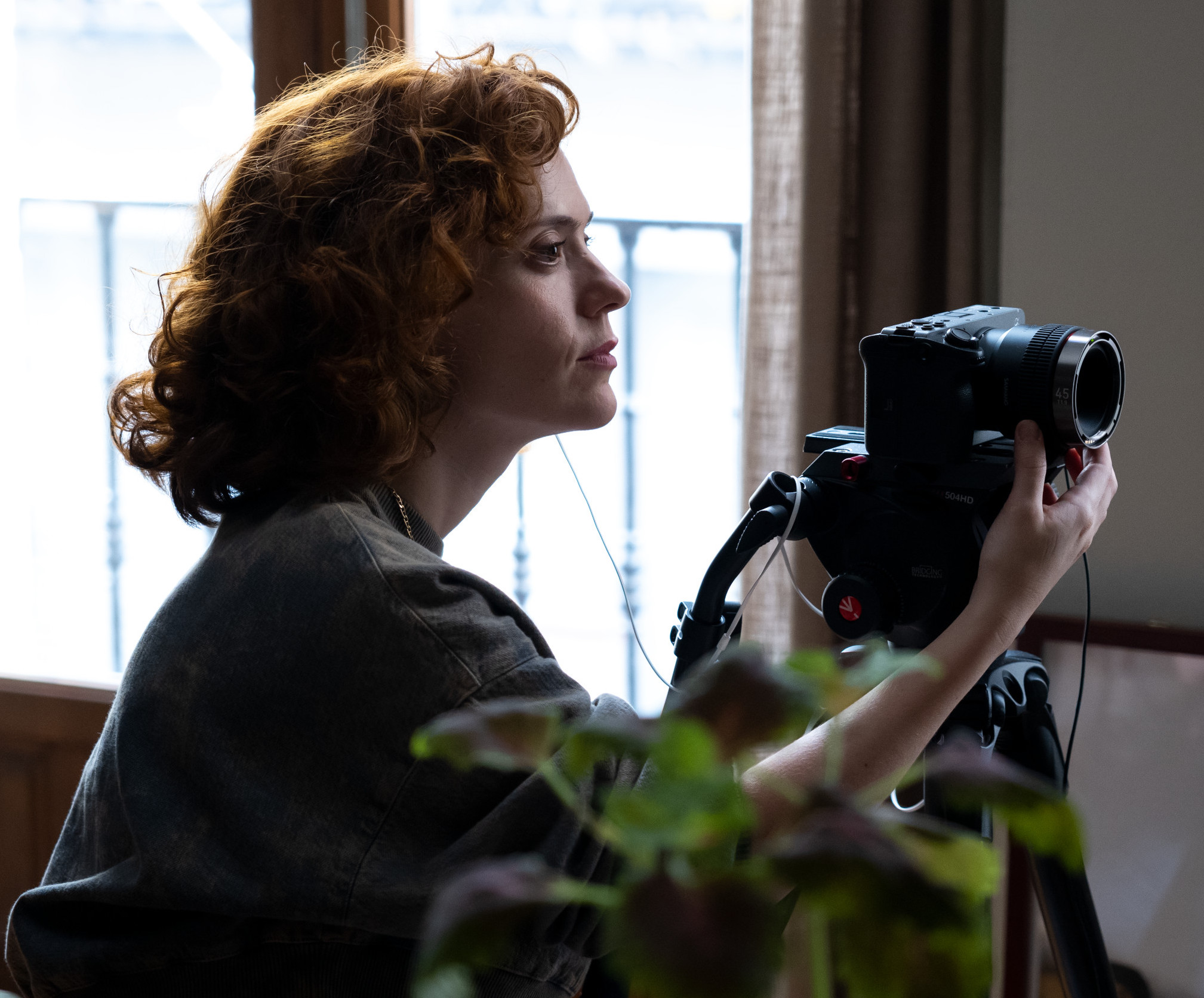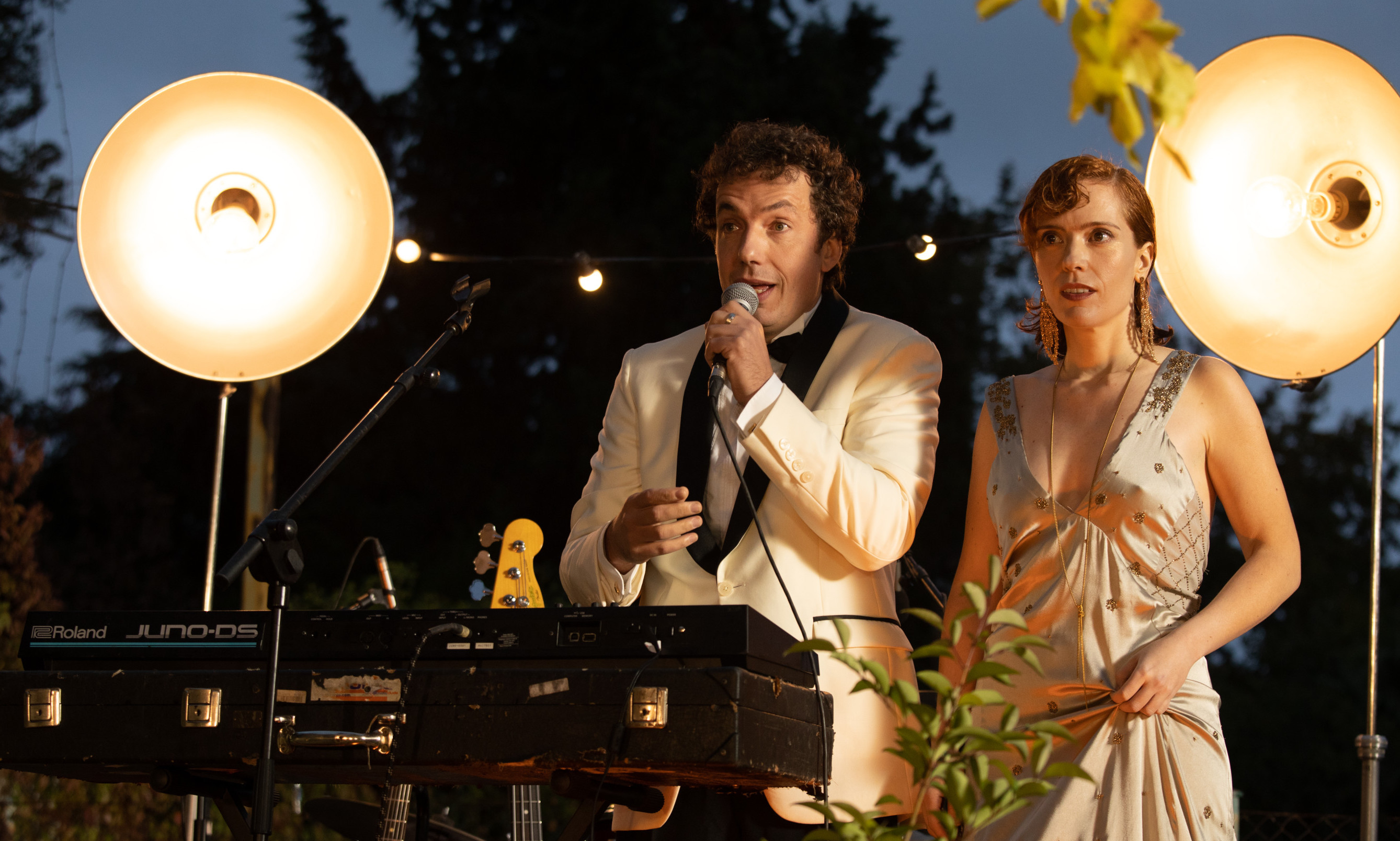The Other Way Around review - teasing Spanish study of a breakup with unexpected depth | reviews, news & interviews
The Other Way Around review - teasing Spanish study of a breakup with unexpected depth
The Other Way Around review - teasing Spanish study of a breakup with unexpected depth
Jonás Trueba's film holds the romcom up to the light for playful scrutiny

Can a romcom be intellectually challenging while hitting all the sweet spots of the genre? Jonás Trueba, the director of the award-winning Spanish film The Other Way Around (Volveréis, literally “you will return”), has confected something close to that.
The bare bones of his storyline are that a couple in Madrid, after 14 or 15 years (they don’t seem sure), have mutually decided to separate, and to throw a party in celebration of their split. Like people entering a marriage, they want to be sure their party is like a wedding, but “the other way around”. The action follows their elaborate preparations for the event – the costumes they will wear, the lighting, location, music – which are much like the pre-production work on the film they are making. And there’s a hint that they may have talked themselves into a decision they aren’t quite on the same page about, but the event has gained a momentum of its own. Will one of them, or both or neither, change course?
We don’t directly discover why the couple have begun to consider separating. They don’t row, seem amicably disposed towards each other, go about their daily routines in a way that smacks of compatibility. Their first getting-up scene is a marvel of intricate choreography, showing them operating like a well oiled machine. Or is this routine too robotic? They claim to friends and relatives that the relationship isn’t working for them any more. Are they bored? Envious of the other? Secretly cheating?
 Trueba isn’t interested in presenting a trite generic storyline with a final-reel resolution. He is more intent on holding the whole romcom genre up to the light in a dizzying way. As the film plays out, the viewer isn’t quite sure how to interpret what’s on screen. Is it on “our” screen, or part of the film-within-a-film that the leads are working on that sporadically pops up on a monitor? How easy is it to separate these two worlds in the film, especially as the soundtrack often plays over scenes from both, stitching them together?
Trueba isn’t interested in presenting a trite generic storyline with a final-reel resolution. He is more intent on holding the whole romcom genre up to the light in a dizzying way. As the film plays out, the viewer isn’t quite sure how to interpret what’s on screen. Is it on “our” screen, or part of the film-within-a-film that the leads are working on that sporadically pops up on a monitor? How easy is it to separate these two worlds in the film, especially as the soundtrack often plays over scenes from both, stitching them together?
To complicate matters further, the actors playing the two leads, Vito Sanz and Itsaso Arana, were also Trueba’s cowriters. The three of them have come up with the main characters: Alejandra, nickname Ale, a confident auburn-headed filmmaker, deep into the final edit of her latest film; and Alejandro, nickname Álex, a gentler, more diffident type who is a struggling actor. He seems to be appearing in Ale’s film, which you see in the footage that she and her editor are working on. Sometimes they seem to be editing what you assumed were scenes from Trueba’s film but turn out to be from Ale’s.
What’s “real” in this film is on the table here; as in, what we are to assume is “really” happening to its characters? Is Ale's film the key to what the couple are going through? Is the whole film really Ale’s film, with a few detours to her edit suite? Adding another enigmatic layer is that Ale’s father is played by the director’s father, the film director Fernando Trueba, a stalwart of Spanish cinema; and he is regularly cited as the source of the separation party idea, which Ale and Álex claim he proposed many times over the years. Or did he? He is an intellectual with a keen interest in film, especially those of Ingmar Bergman. Who also looms large in the life of Álex’s actor friend Fer (Francesco Carril), who treasures his pack of Bergman tarot cards, each featuring a still from a Bergman film with a one-word title underneath. Fer lives his life by these cards, asking them questions each morning though interpreting their meaning as it suits him.
When you stand back from the film you realise it’s more a teasing hall of mirrors than a romcom, though it never loses the latter’s will-they-won’t-they tensions. More important than its denouement, though, are the truths about love the couple encounter and evaluate along the way to their party (pictured below), especially those of Kierkegaard recommended by Ale’s father. He espouses Kierkegaard’s stress on the importance in love of repetition, of living in the moment rather than in the shifting sands of future adventures with unknown outcomes. He also strategically gives them books about film couples who broke up and got back together again (cue an extract of dialogue from The Philadelphia Story), much as Bergman and Liv Ullman did. The two worlds finally coalesce in a wonderful scene in the couple’s flat in which Ale is filming an audition tape with Alex, in which he is playing an unhappy man on the point of breaking up with his partner, and Ale is cueing his lines by reading the part of the girlfriend, immersing herself in the woman’s character the longer she does it. Surprisingly, in this artificial set-up, she shows an unguarded emotional response.
The two worlds finally coalesce in a wonderful scene in the couple’s flat in which Ale is filming an audition tape with Alex, in which he is playing an unhappy man on the point of breaking up with his partner, and Ale is cueing his lines by reading the part of the girlfriend, immersing herself in the woman’s character the longer she does it. Surprisingly, in this artificial set-up, she shows an unguarded emotional response.
It’s a scene that could stand in for our experience of watching a film, a playful way of suggesting that the confections of cinema parallel real life and can winkle out truths of their own. And note, the game goes on to the last gasp of the end credits, teasing and enigmatic but very pleasurable if you like this kind of meta-material.
rating
Explore topics
Share this article
The future of Arts Journalism
You can stop theartsdesk.com closing!
We urgently need financing to survive. Our fundraising drive has thus far raised £49,000 but we need to reach £100,000 or we will be forced to close. Please contribute here: https://gofund.me/c3f6033d
And if you can forward this information to anyone who might assist, we’d be grateful.

Subscribe to theartsdesk.com
Thank you for continuing to read our work on theartsdesk.com. For unlimited access to every article in its entirety, including our archive of more than 15,000 pieces, we're asking for £5 per month or £40 per year. We feel it's a very good deal, and hope you do too.
To take a subscription now simply click here.
And if you're looking for that extra gift for a friend or family member, why not treat them to a theartsdesk.com gift subscription?
more Film
 Blu-ray: The Graduate
Post #MeToo, can Mike Nichols' second feature still lay claim to Classic Film status?
Blu-ray: The Graduate
Post #MeToo, can Mike Nichols' second feature still lay claim to Classic Film status?
 Little Trouble Girls review - masterful debut breathes new life into a girl's sexual awakening
Urska Dukic's study of a confused Catholic teenager is exquisitely realised
Little Trouble Girls review - masterful debut breathes new life into a girl's sexual awakening
Urska Dukic's study of a confused Catholic teenager is exquisitely realised
 Young Mothers review - the Dardennes explore teenage motherhood in compelling drama
Life after birth: five young mothers in Liège struggle to provide for their babies
Young Mothers review - the Dardennes explore teenage motherhood in compelling drama
Life after birth: five young mothers in Liège struggle to provide for their babies
 Blu-ray: Finis Terrae
Bleak but compelling semi-documentary, filmed on location in Brittany
Blu-ray: Finis Terrae
Bleak but compelling semi-documentary, filmed on location in Brittany
 Oslo Stories Trilogy: Sex review - sexual identity slips, hurts and heals
A quietly visionary series concludes with two chimney sweeps' awkward sexual liberation
Oslo Stories Trilogy: Sex review - sexual identity slips, hurts and heals
A quietly visionary series concludes with two chimney sweeps' awkward sexual liberation
 Sorry, Baby review - the healing power of friendship in the aftermath of sexual assault
Eva Victor writes, directs and stars in their endearing debut feature
Sorry, Baby review - the healing power of friendship in the aftermath of sexual assault
Eva Victor writes, directs and stars in their endearing debut feature
 Blu-ray: Who Wants to Kill Jessie?
Fast-paced and visually inventive Czech comedy
Blu-ray: Who Wants to Kill Jessie?
Fast-paced and visually inventive Czech comedy
 Oslo Stories Trilogy: Love review - freed love
Gay cruising offers straight female lessons in a heady ode to urban connection
Oslo Stories Trilogy: Love review - freed love
Gay cruising offers straight female lessons in a heady ode to urban connection
 Beating Hearts review - kiss kiss, slam slam
Romance and clobberings in a so-so French melodrama
Beating Hearts review - kiss kiss, slam slam
Romance and clobberings in a so-so French melodrama
 Materialists review - a misfiring romcom or an undercooked satire?
Writer-director Celine Song's latest can't decide what kind of film it is
Materialists review - a misfiring romcom or an undercooked satire?
Writer-director Celine Song's latest can't decide what kind of film it is
 theartsdesk Q&A: actor Leonie Benesch on playing an overburdened nurse in the Swiss drama 'Late Shift'
The Guildhall-trained German star talks about the enormous pressures placed on nurses and her admiration for British films and TV
theartsdesk Q&A: actor Leonie Benesch on playing an overburdened nurse in the Swiss drama 'Late Shift'
The Guildhall-trained German star talks about the enormous pressures placed on nurses and her admiration for British films and TV

Add comment